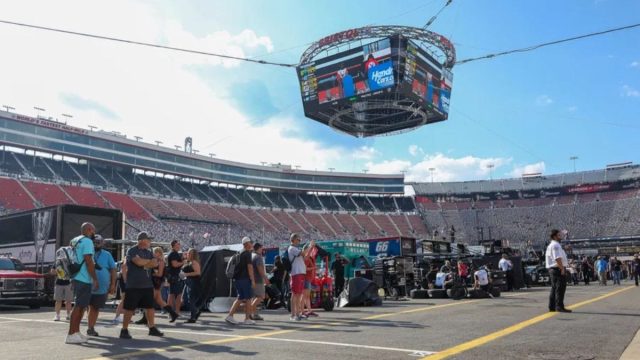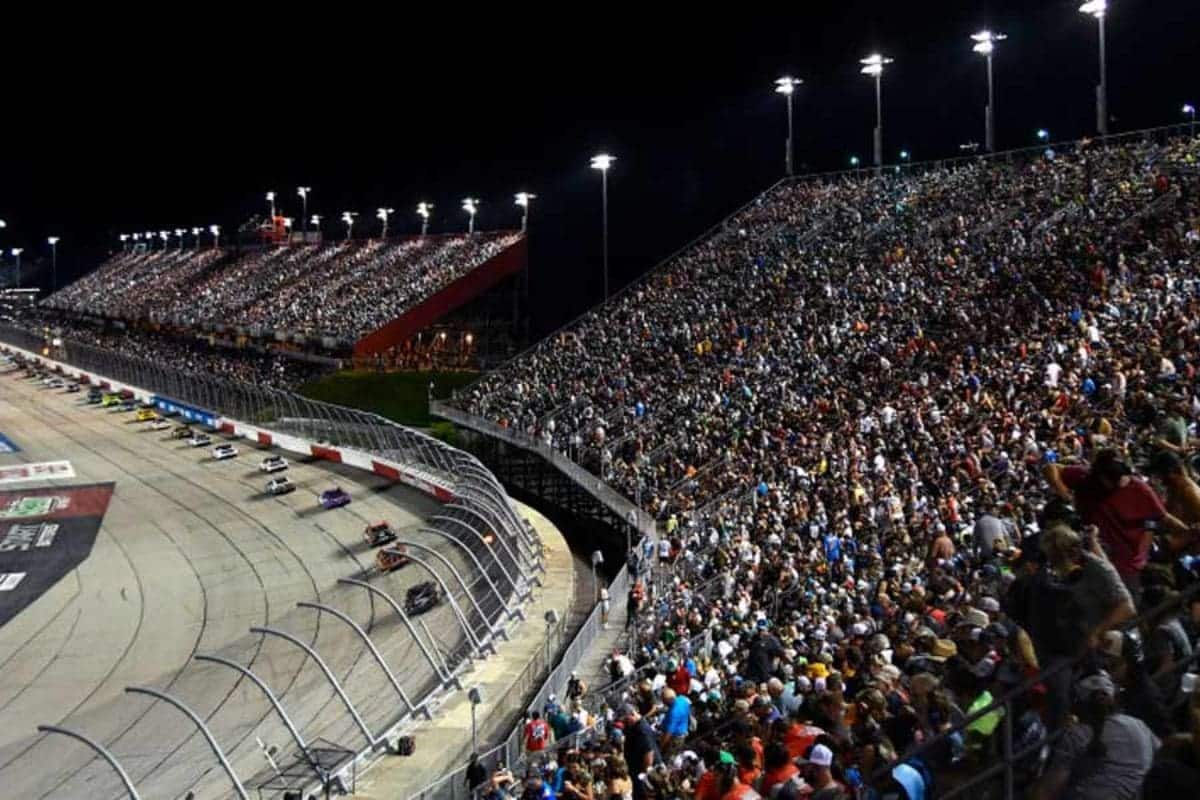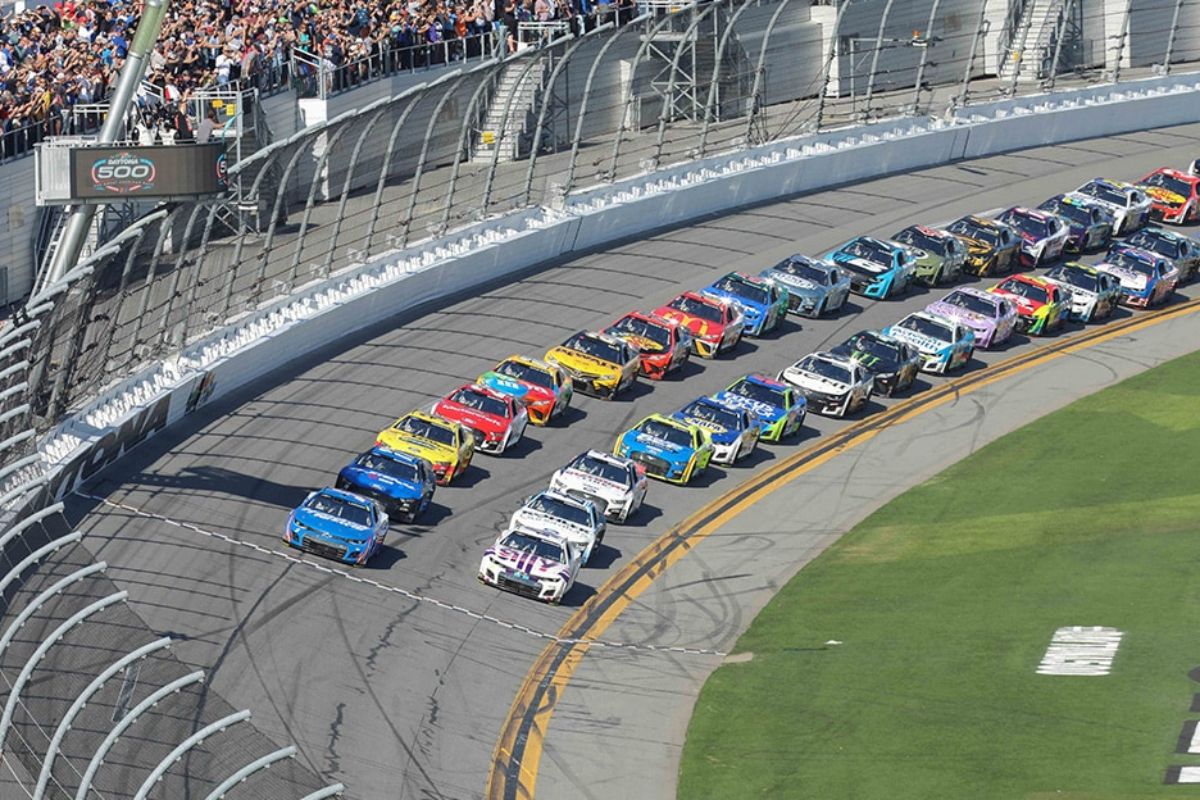Fans Mock NASCAR Global Plans: As NASCAR initiates ambitious plans to expand its footprint internationally, a noteworthy faction of its fanbase is voicing skepticism and disappointment, particularly regarding the overlook of cherished domestic tracks. The rise of sentiments encapsulated in hashtags like #MakeShortTracksGreatAgain highlights a longing for a return to the sport’s roots, where iconic ovals served as the heartbeat of racing culture. This contrast of global aspirations against traditional values raises critical questions about the future of NASCAR’s identity and the potential consequences of straying too far from its heritage. What does this mean for the sport’s longevity and authenticity?
Key Highlights
- Fans are frustrated with NASCAR’s focus on international venues, feeling it alienates core supporters and neglects iconic domestic tracks.
- The hashtag #MakeShortTracksGreatAgain reflects a growing demand for a return to traditional oval racing experiences.
- Many supporters express disappointment over projects like the Chicago Street Race, which they believe diverges from NASCAR’s American roots.
- There is a strong desire for NASCAR to prioritize heritage events and classic tracks to reinforce brand identity and fan loyalty.
NASCAR’s International Plans
NASCAR’s ambitious push to expand its reach beyond the United States marks a tactical shift aimed at tapping into international markets, particularly in Mexico and Canada, as the racing series seeks to engage a broader audience and rejuvenate its fan base. This calculated move is indicative of NASCAR’s recognition of the necessity to adapt to contemporary trends in auto racing, a landscape where competitors like Formula 1 have effectively captured the attention of diverse demographics globally.
The consideration of venues such as Mexico City and Montreal is not merely a nod to geographical expansion; it reflects a deliberate endeavor to introduce stock car racing to audiences unfamiliar with its nuances. By venturing into these markets, NASCAR aims to cultivate a new generation of fans, potentially harnessing the fervor associated with motorsport in these regions. This initiative is predicated on the understanding that traditional viewership is waning and that innovation is crucial to sustaining relevance in an evolving entertainment ecosystem.
However, this international aspiration raises questions about the brand’s identity and the coherence of its traditional fan base with this new direction. There is a delicate balance to be struck between honoring NASCAR’s storied history and embracing the future. The challenge lies in effectively communicating the essence of stock car racing to audiences steeped in different racing cultures, ensuring that NASCAR’s core values resonate even as it seeks to broaden its appeal.
The 2025 Cup Series calendar, consequently, could serve as a pivotal moment, shaping the path of NASCAR in the years to come.
Buzz and Fan Polls about International Venues
Amid growing excitement for NASCAR’s international expansion, social media platforms are abuzz with fan opinions and polls, revealing a notable divide between traditionalists and those keen for change. The NASCAR page Couch Racer recently conducted a poll on X, attracting around 2,000 responses, mainly favoring Montreal as an international race destination. However, the comment section revealed a contrasting sentiment, primarily from long-standing fans who prefer the traditional oval tracks that have historically defined the sport.
Which international NASCAR race would you rather see happen in 2025?
— Couch Racer (@CouchRacerShop) August 3, 2024
This tension highlights a critical issue within NASCAR’s evolving identity. The anticipated shift to road course venues, while groundbreaking, has not resonated well with the core demographic that cherishes the sport’s roots. The preference among fans for classic racing formats raises questions about the sustainability of NASCAR’s globalization strategy. Many fans express concern that the focus on international venues may detract from revitalizing iconic tracks that have shaped the NASCAR legacy.
Furthermore, the discourse surrounding this potential international expansion emphasizes a broader apprehension about the sport’s direction. While the allure of new markets is undeniable, the vocal opposition from traditionalists signals that any successful change must carefully balance innovation with respect for the historical elements that have secured NASCAR’s devoted fanbase.
Criticism from Fans for Ignoring Iconic Tracks
How can NASCAR justify its focus on international venues when a substantial portion of its fanbase feels neglected in the face of declining attention to the iconic tracks that have long defined the sport? This discontent is palpable, particularly as fans express skepticism regarding the efficacy of recent innovations, such as new race car development and the inclusion of tracks. Critics argue that these efforts have neither improved the racing product nor rekindled the excitement associated with short-track ovals.
The sentiment is encapsulated in a fan’s remark, questioning whether the financial investments made in car technology and track diversification could have been better allocated to revitalize beloved venues. The hashtag #MakeShortTracksGreatAgain has surfaced in discussions, indicating a collective yearning for the thrilling experiences historically provided by these tracks.
“Maybe they could spend all that money on car development. We had such a fun product and have done everything possible to change it…cars, tracks, SMT data… why? Has any of it made the racing better? There’s a survey topic for ya. #MakeShortTracksGreatAgain.” – fans’ reaction
Furthermore, the disconnect between NASCAR’s global aspirations and the preferences of its core audience raises considerable concerns about the sport’s direction. While broadening the international footprint may attract new fans, it risks alienating those who have supported the sport through generations.
Preference for Domestic Tracks
The growing preference among fans for domestic tracks highlights a mounting frustration with NASCAR’s shift towards international venues. Many loyal supporters yearn for a return to the traditional racing experiences that have long defined the sport.
The current NASCAR schedule, which includes five road races, has led to discontent among purists who feel that oval tracks embody the essence of American motorsport. Fans express a longing for iconic venues such as Rockingham and the Nashville Fairgrounds, suggesting that the allure of these tracks is overshadowed by the increasing prevalence of road courses.
“Rockingham or Nashville fairgrounds. I’m tired of road courses.” – fans’ reaction
This sentiment is further amplified by the disappointment surrounding NASCAR’s failure to convert Auto Club Speedway into a short-track oval, a promise that has seen little progress. Instead, the demolition of the entire speedway has left fans questioning the organization’s commitment to preserving its domestic heritage. The juxtaposition of ambitious international plans against a backdrop of unmet domestic expectations fosters an environment ripe for criticism.
“international?? how about the proposed “short-track” at Fontana. Thats in a different country.” – fans’ reaction
Moreover, the call for a renewed focus on traditional tracks is not merely nostalgia; it reflects a deeper desire for authenticity and connection within the sport. As fans grapple with the implications of NASCAR’s global ambitions, the conversation shifts toward a yearning for familiar venues that encapsulate the heart and soul of racing.
Criticism of Current Projects and Focus on Tradition
What drives the criticism surrounding NASCAR’s current projects is a palpable sense of disappointment among fans who feel that the sport’s focus has shifted away from its traditional roots in favor of experimental international ventures.
The Chicago Street Race has emerged as a focal point of this discontent, perceived by many as a failure to engage new audiences while alienating long-time fans. Critics argue that resources would be better allocated to reviving classic venues like Rockingham, which they believe would resonate more with the core NASCAR demographic.
The discontent is further amplified by an underlying question regarding the necessity of international races. Many fans are left pondering the relevance of such endeavors when NASCAR’s identity is intrinsically tied to American culture and motorsports.
“How about eliminating Chicago and going to the Rock instead! Plus the last time I checked the N in NASCAR stood for National. So no need to leave the USA!.” – fans’ reaction
While events like the Daytona 500 and Brickyard 400 still attract global attention, the push for international expansion raises concerns about diluting the brand’s heritage. Fans are yearning for a return to the sport’s essence, advocating for events that celebrate its storied history rather than a leap into uncharted waters.
“New question: Do we need an international race?” – fans’ reaction
This call for tradition over innovation highlights a critical juncture for NASCAR—a moment to reassess priorities and recommit to the foundational values that have sustained its loyal fan base.
News in Brief: Fans Mock NASCAR Global Plans
In consideration of the growing discontent among fans regarding NASCAR’s international expansion, it becomes evident that a strong desire for the preservation of traditional tracks remains at the forefront of the community’s values.
The emphasis on global venues risks alienating the core fanbase, who champion the sport’s historical roots.
As discussions continue under hashtags like #MakeShortTracksGreatAgain, NASCAR faces a vital decision: balancing the allure of new markets with the need to honor its rich heritage and loyal supporters.
ALSO READ: Fans Slam NASCAR’s Scheduling Issues, Call It a ‘Clownshow’”



